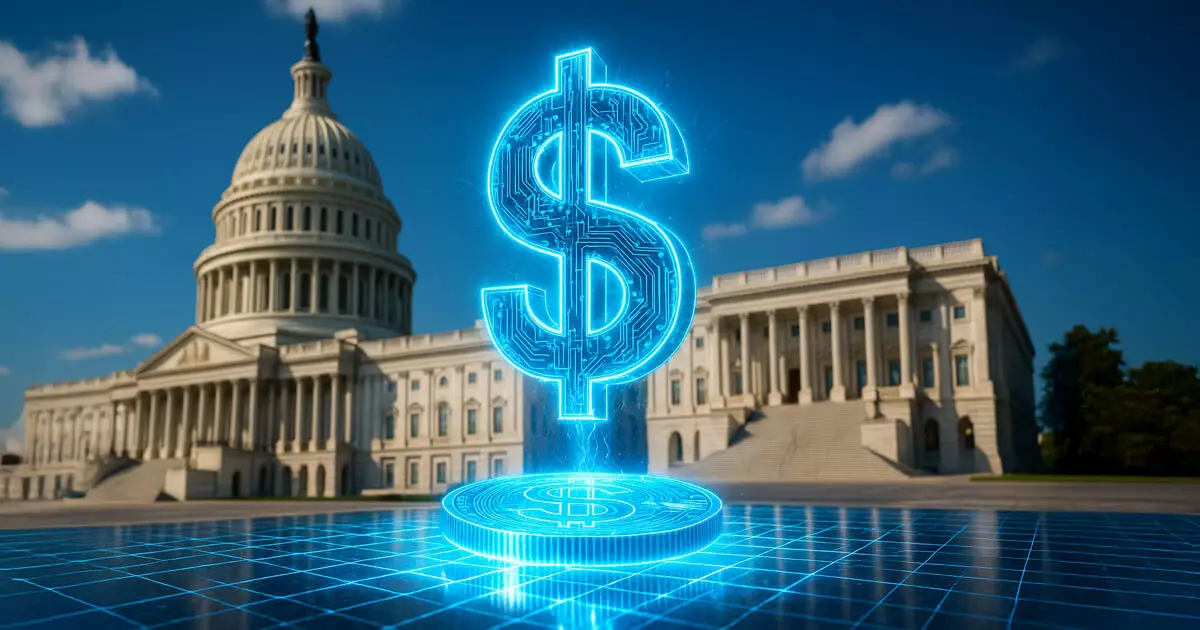Within the increasingly competitive landscape of digital currencies and financial innovation, the proposed GENIUS Act represents an ambitious legislative pursuit aimed at regulating stablecoins. While on the surface, the notion of having a structured approach to digital assets seems like a step in the right direction, one cannot ignore the potential ramifications of this bill. The fact that Senate Republicans are rushing the vote on it, allegedly to preserve American economic primacy, raises serious concerns. This article will tackle seven points that illustrate why the GENIUS Bill might serve to complicate, rather than clarify, the regulatory landscape governing digital finance.
1. Accelerated Legislation Reflects a Rash Decision-Making Process
The fast-tracking of the GENIUS stablecoin legislation indicates a sense of urgency that seems unfounded. America, known for its principle of careful deliberation, appears to be sidelining its usual standards of scrutiny in favor of a knee-jerk reaction to developments in the cryptocurrency landscape. By pushing for a floor vote before the Memorial Day recess, lawmakers risk overlooking key considerations essential for responsible legislation.
2. Insufficient Protections Against Corporatization
While advocates argue that the GENIUS Act will establish oversight, a glaring concern remains: the potential for mega-corporations to capitalize on this regulatory framework. Notably, figures like Senator Elizabeth Warren have pointed out that giving large tech companies the green light to issue their own stablecoins could undermine existing financial systems. The bill currently lacks adequate safeguards to prevent a scenario where the banking industry becomes overshadowed by privatized financial giants wielding excessive influence.
3. An Overly Simplistic Framework
The GENIUS Act proposes a one-size-fits-all approach underpinned by a 1:1 backing mandate that may not truly reflect the complexities of the digital asset ecosystem. By focusing exclusively on cash and Treasuries, the bill risks neglecting other viable reserve options that could foster innovation and growth. The demand for a rigid framework may lead to more stifling regulations rather than an adaptable system that can accommodate the evolving nature of digital currencies.
4. The Illusion of Bipartisanship
While the GENIUS Act received bipartisan support in committee, this façade has begun to unravel. With divisions emerging even among Democratic senators who previously indicated support, it becomes evident that the bill’s promise of unity might be a mere illusion. This growing friction reflects a broader contention that transcends party lines: the concern over the long-term implications of creating a large federal framework intended for stablecoins.
5. Risks of Displacing Traditional Banking
The legislative push for the GENIUS Act overlooks significant concerns raised by community banks and financial institutions. Over 20 banking organizations voiced fears that the bill would enable digital assets to encroach upon traditional banking roles, potentially displacing deposits and destabilizing the financial system. Such a seismic shift in financial norms threatens to undermine decades of stable banking practices, all under the guise of innovation.
6. Federal vs. State Oversight Complications
The bill aims to establish a federal framework while also considering state-level pathways for smaller players. However, managing a dual regulatory system poses substantial challenges. The confusion surrounding compliance and regulatory guidelines could lead to fragmented enforcement; smaller entities may find themselves at a disadvantage, heightened by unnecessary complexity in navigating overlapping jurisdictions.
7. Losing the Global Edge in Digital Currency Innovation
As Congress deliberates, concerns arise that the GENIUS Act may inadvertently stifle innovation within the U.S. fintech landscape. While the promise of clarity draws proponents, the stringent regulatory measures could hinder budding enterprises. As global players embrace nimble frameworks, the emphasis on outdated metrics like reserve backing threatens to deter investment and exploration. America risks losing its competitive edge as a leader in digital finance by implementing an inflexible regulatory model.
While the GENIUS Act aims to establish a framework for stablecoin regulation, it risks complicating the monetary landscape in significant ways. The urgency surrounding its passage reflects a misplaced priority in safeguarding American interests while jeopardizing the innovations that can lead ordinary citizens toward financial autonomy. The Senate’s upcoming vote on this legislation will be a crucial moment that needs a more nuanced approach than merely rushing toward a predetermined endpoint.


Leave a Reply